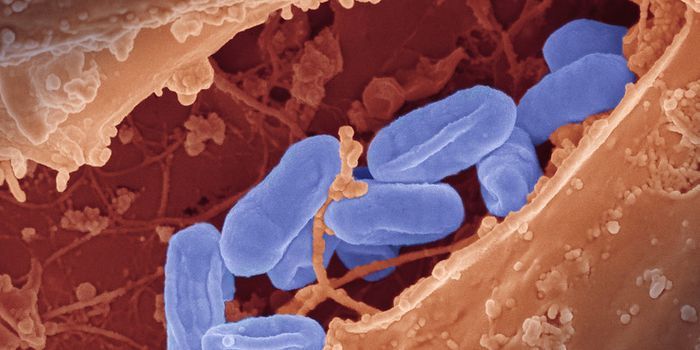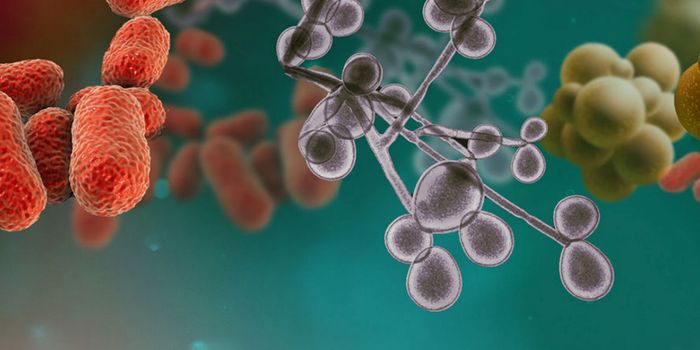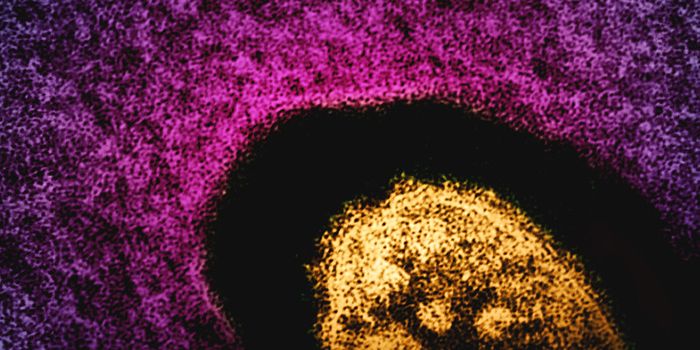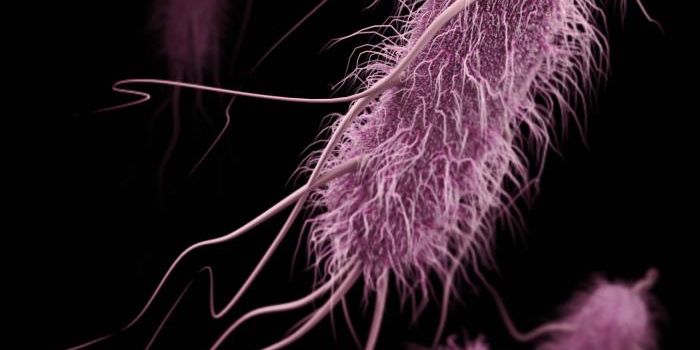Pathogenic microbes can cause serious damage to our intestinal lining that must be repaired by our body.
New research published in Science demonstrates that the very immune responses that are meant to fix damage to the gut are actually quite beneficial to the pathogens that are causing the problems in the first place.
In the closed confines of the large intestine, there isn’t much oxygen available for microbes, which is how it should be. The beneficial bacteria that should make up our microbiome are meant to thrive in such an anaerobic environment. Nasty bacteria that should not be in the large intestine like Escherichia coli in humans and Citrobacter rodentium in mice require oxygen for survival. The authors of this new work have shown however, that pathogenic microbes are able to fill their respiration needs by taking advantage of the body's repair mechanism, as the cells that do the repair work bring oxygen to the site.
"The finding is important because it explains how some enteric pathogens can manipulate mammalian cells to get the oxygen they need to breathe," explained lead author of the study, Andreas Bäumler, a Professor of Medical Microbiology and Immunology at the University of California Davis School of Medicine. "It also offers new insight into developing strategies targeting the metabolism of the intestinal lining to prevent the expansion of harmful bacteria in the gut, a situation that is exacerbated by the overuse of antibiotics."

"Enteric pathogens deploy virulence factors that damage the intestinal lining and cause diarrhea," Bäumler continued. "To repair the damage, the body accelerates the division of epithelial cells that form the intestinal lining, which brings immature cells to the mucosal surface. These new cells contain more oxygen and wind up increasing oxygen levels in the large bowel, creating an environment that allows gut pathogens like E. coli to outcompete the anaerobic-loving resident microbes." As such, the body is feeding the pathogens while trying to fix the damage they've done.
This work could aid in the development of therapeutics that affect these changes. Reestablishing the right composition of bacteria to impact the invading pathogens might be one strategy, or combating the negative influence on the intestinal lining might be another.
"The rise of antibiotic-resistant strains of bacteria has become a major public health threat worldwide, Bäumler added. "As more bacterial strains do not respond to the drugs designed to kill them, the advances made in treating infectious diseases over the last 50 years are in jeopardy."
Finding out more about how the natural defense systems of the body are manipulated by pathogenic microorganisms is an important area of research that is blossoming at UC Davis. Various laboratories are investigating the influence of the microbiome on health and behavior, antibiotic resistance, cancers of the gastrointestinal tract, obesity, inflammatory bowel disease, and irritable bowel syndrome are just some of the other disorders being studied.
Sources:
MedicalExpress/Phys.org via
UC Davis,
Science



![[Guide] 7 Strategies to Boost Laboratory Collaboration](https://d3bkbkx82g74b8.cloudfront.net/eyJidWNrZXQiOiJsYWJyb290cy1pbWFnZXMiLCJrZXkiOiJjb250ZW50X2FydGljbGVfcHJvZmlsZV9pbWFnZV83YzBjZWIwM2Y5YzI4MmFlYzBhZDZhMTcyNTQ1ZGU3YmE4Y2MzMDYyXzUxNDkuanBnIiwiZWRpdHMiOnsidG9Gb3JtYXQiOiJqcGciLCJyZXNpemUiOnsid2lkdGgiOjcwMCwiaGVpZ2h0IjozNTAsImZpdCI6ImNvdmVyIiwicG9zaXRpb24iOiJjZW50ZXIiLCJiYWNrZ3JvdW5kIjoiI2ZmZiJ9LCJmbGF0dGVuIjp7ImJhY2tncm91bmQiOiIjZmZmIn19fQ==)






